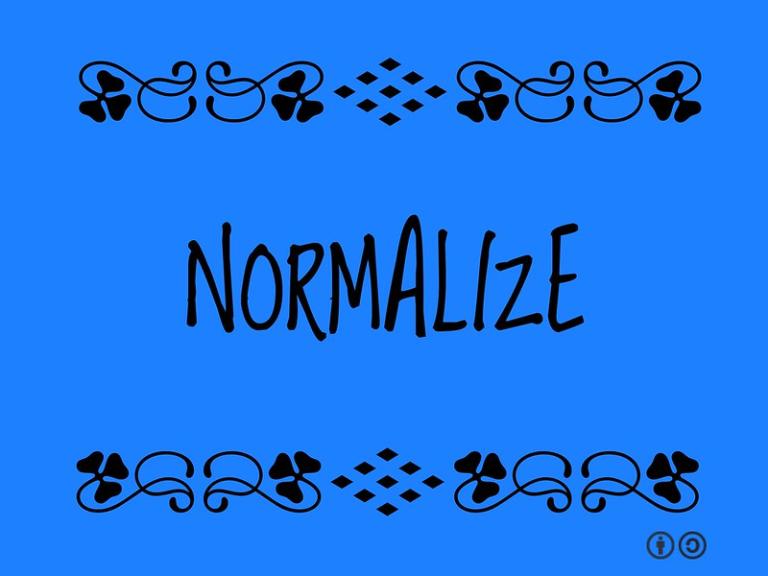In the course of the post, Denison puts a name on what is happening as these former taboos are now presented as being perfectly acceptable: Normalization. He writes,
“Normalization” has been defined as “the process through which wisdom becomes conventional.” In the context of providing medical and social care for others, especially those who are often devalued by society, normalizing values, behaviors, and experiences can “help us dislodge some of the prejudices and biases that both we and the general society at large hold against people who are different.” In this sense, it “provides one of the most coherent and systematic ideologies to light the road for all human services.”
Once an idea or behavior becomes normalized, those who align with it are protected or even rewarded, while those who deviate from it may face conflict, disrepute, and social isolation. Such an outcome can be the aim of conscious attempts to manipulate the norm to change attitudes.
I would add that we need another word for what happens to the previous “norm.” Shall we say, “abnormalization”? I don’t know that this is a recognized concept in the social sciences, but the term, along with “abnormalize,” is in the dictionary. But examples abound.
Not long ago, having sexual relations with someone of one’s own sex was considered “not normal”; that is, a violation of the “norm” of what sex is. Homosexuality was listed in psychiatric manuals as a disorder. Today, those manuals do not list homosexuality, but they do list “homophobia” as a disorder. Not approving of homosexuality is now considered abnormal, a violation of social and moral “norms.”
Not long ago, extramarital sex, “living together” without marriage, and having babies out of wedlock were considered violations of social and moral “norms.” Today, all of these have become “normalized”–note their portrayal in the media, the entertainment industry, and the culture as a whole–to the point that NOT doing these things or approving of them is portrayed as weird, eccentric, or perverse. That is, abnormal.
Going to church used to be normal; now it is not, even though most Americans still do it. Obscene language used to violate the norms of good behavior; now it has been “normalized,” being accepted at work, in mixed company, on prime time television, and pretty much everywhere. Pornography has been normalized. So has drug use.
What are some other examples of this phenomenon?
Since this is not simply something that happens naturally, but a tactic that can be employed to change people’s perceptions, is there a way to make this work in a culturally conservative way, to establish traditional “norms” once again? Or at least to persuade people that certain behaviors are not normal after all?
Illustration by Ron Mader via Flickr, Creative Commons 2.0 License,














